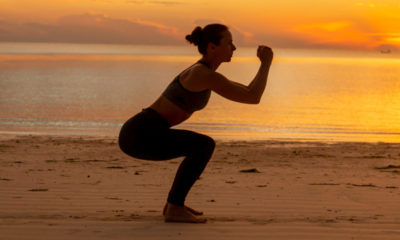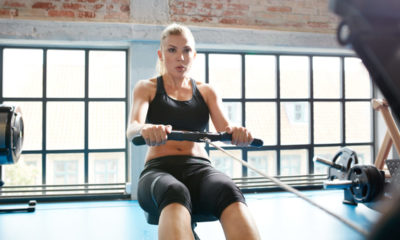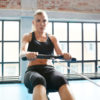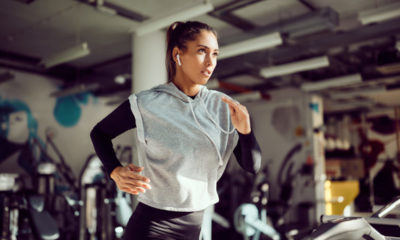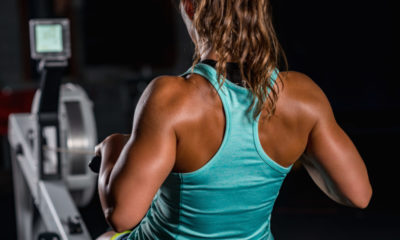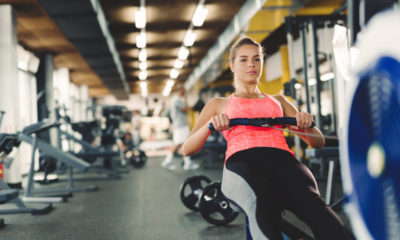Fitness
Use your hormones to your advantage
In March, I published an article about how your cycle affects your performance in the gym. It was a quick overview of how hormone shifts influence how you feel in the gym and performance.
I wanted to follow that up with how much we might benefit from switching our training program to use our hormones to our full advantage. But we shouldn’t over-complicate things or make it seem like you’re Wonder Woman half the month and a human lump the other half. The effects on performance, strength, and muscle growth are real, but it’s important to rationalize that they’re not so extreme that you’re doing something wrong if you don’t shift your program around.
Here’s the need-to-know:
– You do become slightly more anabolic when your estrogen is higher after the 3rd–6th day of your period up until ovulation. This is the time of the month where you will make the most strength gains in comparison to any other time. But that again, doesn’t mean you won’t gain muscle during the luteal phase of your cycle. It’s just harder in the later phase by comparison.
– You’re more insulin sensitive this half of the month, but that neither means that you get a free-pass on excess sugar nor do you need to pull out all your refeeds in the latter half of the month. It’s important to pay attention to how your body is responding to your diet. But if you’re not consistently hitting your goal numbers day in and day out, you won’t be able to tell if it’s your hormones or your diet that is making the difference.
– The progesterone spike that comes in during the later phase of your cycle can influence body temperature. So you’ll feel warmer and it will take longer to exhaust your muscles. But the increase of fluid retention and bloating can make you feel worse in the gym. If you become very bloated and uncomfortable, switching your workouts to more of a circuit cardio style may make you feel better and help shed water.
– As noted in my last article, serotonin is lower at this time of the month, so your cravings for sugars increase. So pushing yourself harder in your workouts will help you feel better and give you a much-needed mood-boost.
– If you follow up on researching more into this yourself, keep in mind that though physiological effects of your hormones are noted, correlation is not causation. Meaning, there needs to be a lot more research on this topic to say definitively just how much your hormones are impacting your training. But if you’re a performance athlete, the take-away here in these studies is often that women will perform at their peak right around their time of ovulation. Especially in terms of strength and power. So if you’re out to test your limits for strength, do so at this time of the month.
However, if you are using oral contraception, hormones are balanced through the month and none of the above applies to you.
SOURCES:
http://www-brs.ub.ruhr-uni-bochum.de/netahtml/HSS/Diss/SungEunsook/diss.pdf
https://springerplus.springeropen.com/articles/10.1186/2193-1801-3-668
https://www.t-nation.com/training/hormone-cycle-and-female-lifters
http://journals.plos.org/plosone/article?id=10.1371/journal.pone.0173951
http://www.ptonthenet.com/articles/Estrogen-menstrual-cycle-and-exercise-3980
https://www.ncbi.nlm.nih.gov/pubmed/26818273
https://www.ncbi.nlm.nih.gov/pubmed/26554551



